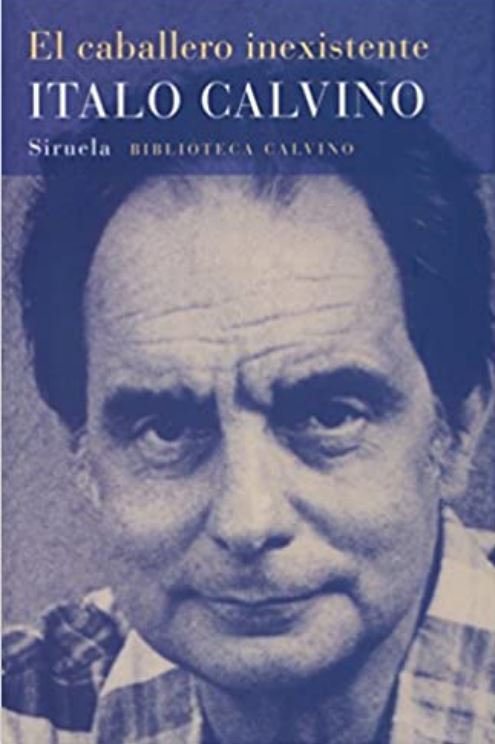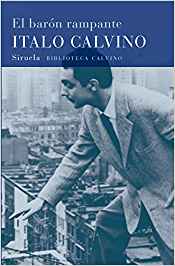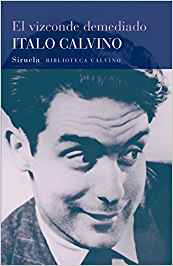The heterogeneous guild or writer's profession is surely the most casual of all. Discovering that you want to tell something and that you more or less know how to tell it is the most authentic way to become a writer. Everything else seems to me, sincerely irrelevant. Lately I see a kind of "writing schools" proliferate, as my curmudgeon grandfather would say: a bitch, nothing more.
All this comes, although not very much, by the fact that one of the great as Italo Calvino It confirms the maxim that the writer does, but makes himself. Nothing more self-taught than to start writing just because. If you are looking for resources or ideas, if you need support or reinforcement, dedicate yourself to something else.
Yes I said right one of the greats, Italo Calvino, would never think of being a writer when he was studying engineering, like his father. Only a time later, after the Second World War, he found a place as an improvised journalist at the same time that he became interested in Literature.
There are two Calvinos, even three or even four (I particularly take the second). At first he wanted to reflect that harsh reality of war and post-war. A normal thing in light of an atrocious reality. But years later he would find his most successful path: fantasy, allegorical, fabulous ...
Until he also got a bit tired of that fantastic trend and ended up in surrealism, which must be what we have left as we get closer to the end and discover the whole hoax. The return to the essay and the social as a phenomenon of study closed his literary years before the stroke that ended him in 1985.
3 recommended novels by Italo Calvino
The nonexistent knight
We can imagine that Andersen story about The Emperor's New Clothes. Nobody was able to admit to their king that the tailor had left him naked, until the child makes it evident ... The deception can sometimes be continued, nothing better than a hilarious and brilliant fable to open our eyes ...
Summary: Agilulfo Emo Bertrandino of the Guildivernos and of the Others of Corbentraz and Sura, Knight of Selimpia Citerior and Fez, is, as has been said, a knight of the court of Charlemagne, the most courageous, compliant, orderly, legal ... but oh ! …. it does not exist, it is not. Inside his armor there is nothing, there is no one.
He tries; tries to "be" ... but ... nothing ... cannot pass from that "non-existence" to another degree ... And together with the squire who is all existence, the total existence, they are all the people in one, and the knight who is a woman, and Charlemagne's troops ... travel the world battle after battle.
The rampant baron
Cosimo is a unique character who makes the drastic decision never to come down from a tree after a childish tantrum. Building a story from there may sound difficult, with little chance of success ... you leave it to Calvino, who has thought about it that way, because he will end up presenting us with a fabulous fantasy, the kind that leaves a mark and a moral ...
Summary: When he was 12 years old, Cosimo Piovasco, Baron of Rondo, in a gesture of rebellion against the family tyranny, climbed up on an oak tree in the garden of his father's house. That same day, June 15, 1767, he met the daughter of the Marquis of Ondarivia and announced his intention of never coming down from the trees.
Since then and until the end of his life, Cosimo remains faithful to a discipline that he has imposed himself. The fantastic action takes place in the late seventeenth century and at the dawn of the nineteenth.
Cosimo participates both in the French Revolution and in the Napoleonic invasions, but without ever abandoning that necessary distance that allows him to be inside and outside of things at the same time.
The viscount half
The fable is what it has, it presents us with the impossible made human, to the greater glory of the impossible. And it turns out that when the impossible materializes, we end up paying more attention to it from estrangement.
And it is at that point that, surprised and oblivious to the rest of the determining factors of our reality, we can draw the most lucid conclusions. Bravo then for the fables and their ability to cleanse our minds of prejudices and preconceptions.
Summary: The Viscount Demediado is Italo Calvino's first foray into the fabulous and the fantastic. Calvino tells the story of the Viscount of Terralba, who was split in two by a cannon from the Turks and whose two halves continued to live separately. Symbol of the divided human condition, Medardo de Terralba goes out for a walk through his lands.
As it passes, the pears hanging from the trees appear all split in half. "Every encounter of two beings in the world is a tearing apart," says the bad half of the viscount to the woman with whom he has fallen in love.
But is it certain that it is the bad half? This magnificent fable raises the search for the human being in its entirety, who is usually made of something more than the sum of its halves. In this volume I collect three stories that I wrote in the fifties to the sixties and that have in common the fact that they are implausible and that they occur in remote times and in imaginary countries.
Given these common characteristics, and despite other non-homogeneous characteristics, they are thought to constitute what is usually called a 'cycle', rather, a 'closed cycle' (that is, finished, as I have no intention of writing others) .
It is a good opportunity that presents itself to me to read them again and try to answer questions that until now I had eluded each time I had asked myself: why have I written these stories? What did he mean? What did I actually say? What is the meaning of this type of narrative in the context of current literature?



